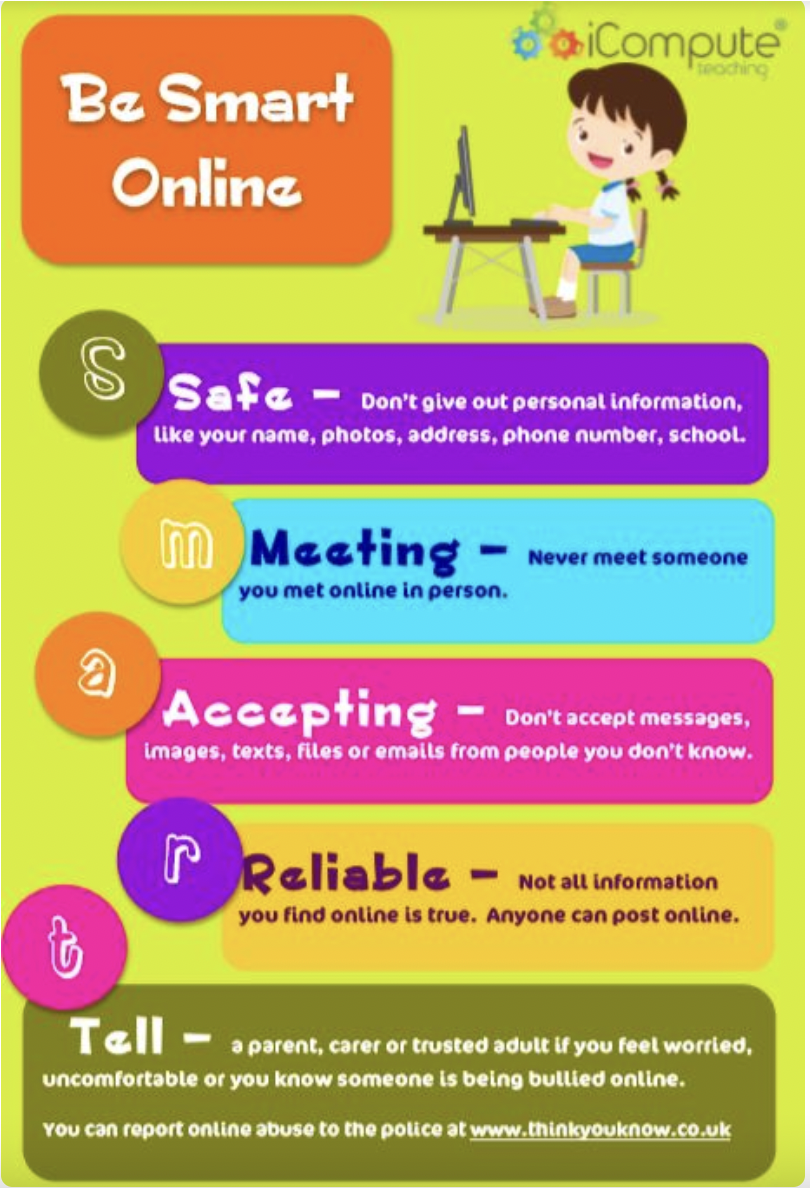Useful Websites to Keep You and Your Child Safe
While you are doing lots of school work at home you may be using the internet more often than
usual – if you are worried about cyber bullying or anything else on the internet please tell a grown up.
You can also report internet abuse on this website www.ceop.police.uk
Click on Make a Report on the first page.
Then click on the box saying | am under 18 years old and follow the instructions.
The internet can play an important part in many aspects of home learning, including teaching, learning and improving communication. However, if not used properly, it can be dangerous or harmful. This simple guide includes hints and tips for both parents and pups.
The children will be familiar with the SMART rules that keep us safe online. Click on the link
above to download and print a PDF version. This can be displayed as a desktop background and
beside your child’s computer or workplace to remind them of the important rules.
The Lucy Faitful Foundation
Chid Explotation and Online Protecion Centre
NSPCC
